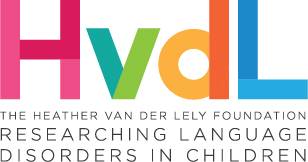This project aims to identify measures to profile the language learning strengths and needs of children.
Around 10% of children will need support in developing their language skills, but assessment of language skills can be challenging for teachers.
This study will identify measures (assessing grammar, phonology, vocabulary and narrative skills) that teachers could use to profile the language learning strengths and needs of children in Reception and Year one.
We are grateful to our advisory board for helping us to shape this research project. We look forward to being able to share the findings with our participating schools, parents/carers, and the wider academic and practitioner community.
This project started in August 2019 and will finish in January 2023.
- Background
Oral language is the main mode of communication and provides the majority of children with essential skills to access the school curriculum, develop literacy skills and engage with others.
Language is a complex skill including vocabulary, grammar and narrative. Knowing which domain best captures development further complicates assessment and identification.
Teachers need reliable and valid measures to monitor progress through Reception and Key Stage 1 which will help to identify where children may require further support.
- Objectives
This study has three broad objectives:
- to examine whether measures of language domains at the word, sentence and text-level can reliably identify children who have language learning needs
- to examine the stability of children’s language trajectories from the age of four by considering the concurrent development of grammar, phonology, vocabulary and narrative skills
- to evaluate the extent to which language measures assessed concurrently and over time are associated with later educational outcomes (e.g., school attainment – reading and writing).
- Methodology
We will be tracking children’s development over three time points to track development across two school years. We have already begun working with 250 children from nine primary schools across London (at time one: 126 children were in Reception and 124 children from Year One classes).
All participating children are monolingual English speakers and parents/carers have provided supporting information about the home language and literacy environment.
Time points:
- At time one we have taken a comprehensive assessment of core language skills (receptive and expressive), as well as administering key measures that can be used by teachers to assess: grammar and phonology, receptive vocabulary, and narrative skills.
- At time two, which is planned for the 2020/21 school year, we will follow up on the key measures.
- At time three we will re-visit these for a final time, as well as employing measures to capture reading and writing skills to examine the relationship between early language and later literacy attainment.
- Team
Principal Investigator
- Professor Julie Dockrell
Co-Investigator
- Dr Emma Sumner
Research Associates
- Useful links for practitioners and carers
- Communication Supporting Classroom Observation Tool (The Communication Trust website)
- Help for your child (Afasic website)
- Interventions for children and young people with speech, language and communication needs, PDF 0.6MB (Gov.uk website)
- Events
 Close
Close


